|
Music Is The Healing Force Of The Universe The Inconsistency of |
|
|
||||||||||||||||
|
October 1 2023
Bordeaux 14th November, 1966
|
|
A few years before he died, Bill Folwell swore blind that he’d never played Bordeaux, that the 1966 European Tour moved straight from Paris to London and then they all went home. In fact, for a while, he stopped replying to my emails. But, here he is, playing bass behind Albert and Don and Michel, to one side of Beaver, at the Sigma Festival in Bordeaux. The performance was filmed and this six minute rendition of ‘Infinite Spirit’ was included in a half-hour TV programme about the Festival and specifically the kinetic sculptures of Nicolas Schöffer (more information on the Bibliography page). We first became aware of it back in October, 2013, when an anonymous collector told me about the video clip from Bordeaux, asking for swaps. I couldn’t oblige, but it did send us on a quest to find more details about a Bordeaux concert which wasn’t even mentioned in the Holy Ghost box set book. I say ‘we’ because most of the heavy lifting was done by Pierre Crépon, who contacted the Bordeaux library and the French I.N.A. (Broadcasting Archive), where the original TV programme now rests. The quest was resumed the following year when a Belgian TV producer, Tom van Cleynenbreugel, contacted me to ask if I knew where he could get hold of some Ayler footage for a programme he was making about the American folk singer, Sam Amidon. I pointed him in the direction of the I.N.A. and as a result a 90 second clip of the Bordeaux performance was broadcast on Belgian TV on 30th March, 2014. One delightful thing about the clip on youtube is the inclusion of the audience’s reaction at the end. This is presumably the original ‘collector’s item’ which we were told about 10 years ago, so, if it has been ‘doing the rounds’ since then, maybe the I.N.A. won’t descend like a ton of bricks and have it removed. Still, if they do, judging by what happened to the Kasper Collin film, once the hostage is released, he seems to keep on finding new homes all over the place. * Richard Davis (15/4/1930 - 6/9/2023 Richard Davis, the bass player who accompanied Albert and Don Ayler and Milford Graves at the funeral of John Coltrane, has died at the age of 93. During a prolific career, Davis performed across the entire music spectrum, jazz, classical and pop, and contributed to many iconic recordings (including, according to the Guardian obituary, Janis Ian’s ‘At Seventeen’). There are a lot of obits online including, The New York Times and Pitchfork, none of which mention Albert Ayler, so I’m grateful that Kees Hazevoet let me know about his passing, since I would probably have missed it. Kees also pointed out that Davis was one of the bassists listed in Don Ayler’s 1969 group which contributed those two blistering tracks to the Holy Ghost box set. |
|||||||||||||||||||||||||||||||||||||
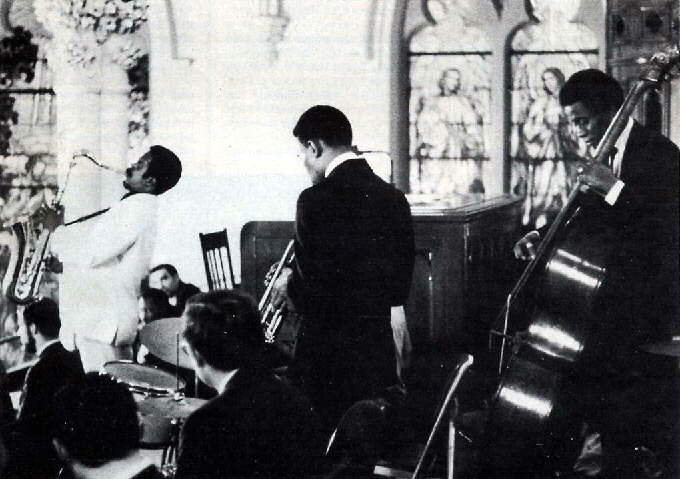 |
|||||||||||||||||||||||||||||||||||||
|
At this point I feel I should also mark the recent passing of the saxophonist Charles Gayle. He was born on 28th February, 1939 and died 5th September, 2023, at the age of 84. There are obituaries at The New York Times and NPR, and The Wire has a couple of interviews from 1994 and 2012. * Makes a change from Spiritual Unity Bells makes the cut in ‘Jazz Is My Religion: Idris Ackamoor’s Baker’s Dozen’ at The Quietus, which includes some personal reflections on Charles Tyler. * Sacrilege Dirk Goedeking sent me this link to the new yellow vinyl edition of Love Cry in the Verve By Request Series. Yellow vinyl is one thing, grey cover ...? |
|||||||||||||||||||||||||||||||||||||
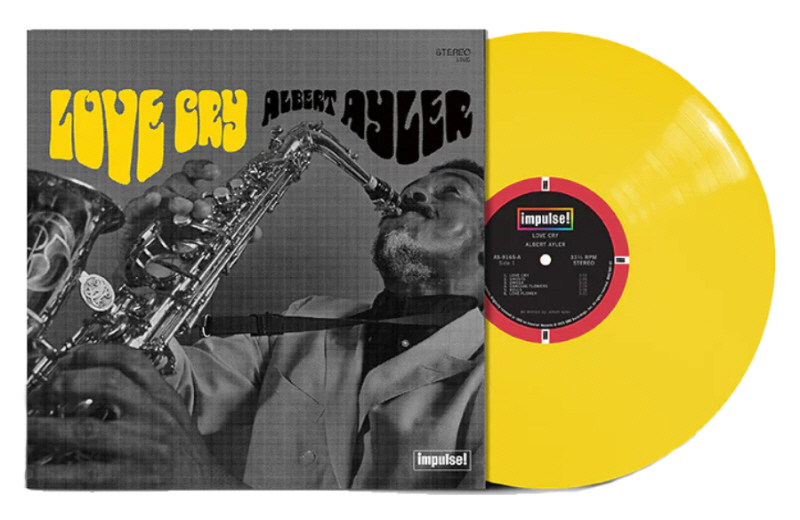 |
|||||||||||||||||||||||||||||||||||||
|
What I Missed Dirk Goedeking also sent me a roundup of ‘recent’ Ayler activity, suggesting in Japan we visit the Hakozaki Suizokukan Cafe and listen to the ‘Albert Ayler Tribute Unit’. |
|||||||||||||||||||||||||||||||||||||
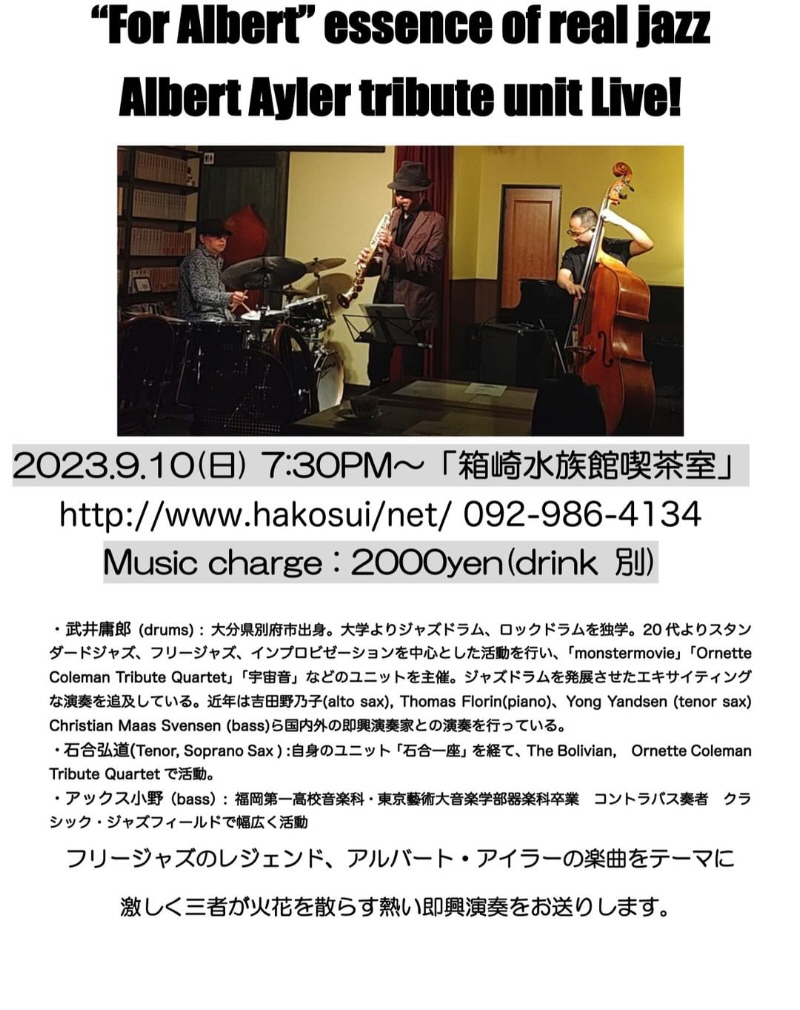 |
|||||||||||||||||||||||||||||||||||||
|
- in Connecticut visit Hartford's Bushnell Park, where David Murray himself is still sending "Flowers for Albert". |
|||||||||||||||||||||||||||||||||||||
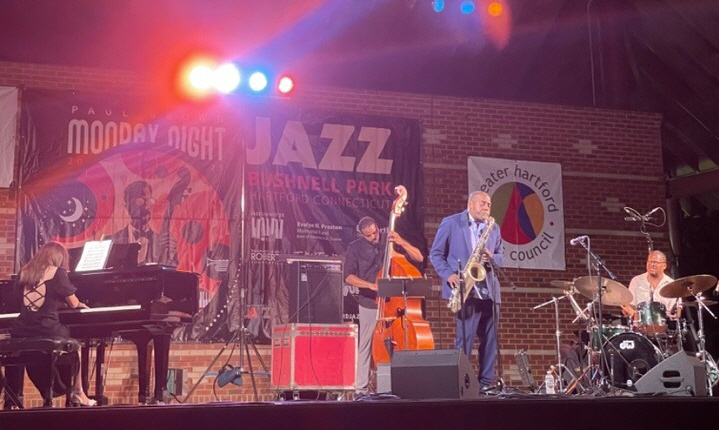 |
|||||||||||||||||||||||||||||||||||||
|
- in Washington visit Olympia's West Central Park, where Dick Valentine's ‘Healing Force’ are part of the festival. |
|||||||||||||||||||||||||||||||||||||
 |
|||||||||||||||||||||||||||||||||||||
|
- in Vermont visit the 118 Elliot and Nu Mu Tu Festival, take part in "The Albert Ayler Benefit Golf Outing" (!?!) and afterwards go to a night of celebration with Jeff Lederer et al. |
|||||||||||||||||||||||||||||||||||||
 |
|||||||||||||||||||||||||||||||||||||
|
That last one cried out for more information (which I obviously failed to provide back in August), so here’s the relevant page of the Brattleboro Area Chamber of Commerce and here’s the Festival site, on which we find the following: ‘“Flowers for Albert” is a night of celebration of the musical legacy of the great free jazz saxophonist Albert Ayler that will take place on Saturday, Aug 26 as part of August’s Nu Mu Tu Music and Art Festival at 118 Elliot in Brattleboro, Vermont. Albert Ayler was a forward-thinking improviser who in his short lifespan (1936 -1970) revolutionized approaches to his instrument, and to the jazz language as a whole. Saturday evening starting at 7pm, we’ll host a community-based music making event interpreting the repertoire of Albert Ayler in new ways with a flexible ensemble of local musicians and guests. During the day on Aug 26 (starting at 10am), a very informally organized “Albert Ayler Memorial Golf Outing” will happen at the Brattleboro Country Club. Ayler was a championship golfer as a youth in Cleveland Ohio. Fees for this event will be donated to local social services organizations. Please contact jeff@littleimusic.com if you wish to participate or for more information.’ |
|||||||||||||||||||||||||||||||||||||
 |
|||||||||||||||||||||||||||||||||||||
|
What’s New July to September 2023 has been sent to the vaults. ***
November 1 2023
Book Chat Perhaps an indication of a slow month in Aylerworld, but last month there was that Bordeaux video, which, surprisingly, is still available on youtube, so a return to the norm is to be expected. Are we sitting comfortably, then we’ll begin: 1. Holy Ghost by Richard J. Koloda was shortlisted for the Ralph J Gleason Music Book Award alongside 11 others, and the results were announced last month. Unfortunately, Richard’s book didn’t win. Here are the winners: ‘Honoring the finest books on popular music from around the world, the Rock & Roll Hall of Fame, New York University’s Clive Davis Institute of Recorded Music, and The Pop Conference are proud to announce the following as the winners of the 2023 Ralph J. Gleason Music Book Award: 1st Place: Black Country Music: Listening for Revolutions by Francesca T. Royster (University of Texas Press) 2nd Place: Dilla Time: The Life and Afterlife of J Dilla, The Hip-Hop Producer Who Reinvented Rhythm by Dan Charnas (MCD/FSG) 3rd Place: Live Music in America – A History from Jenny Lind to Beyoncé by Steve Waksman (Oxford University Press)’ 2. There are a couple of complimentary reviews of Emmanuel Clerc’s recently published Albert Ayler: Vibrations, one from a few months ago in Les Echos and a more recent one from CitizenJazz. I have to add that Alain Chauvat, who did attend both concerts at the Fondation Maeght, emailed me to say that “M. Clerc won the prize of the worst book about Albert Ayler”. So, caveat emptor. No English translation is currently available so my own two penn’orth remains in my pocket. 3. Similarly without an English translation is Peter Kemper’s new book, The Sound of Rebellion, which Dirk Goedeking informed me “contains a 39 page chapter entitled ‘Albert Ayler: The silent cry - approaches to spiritual politics’.” |
|||||||||||||||||||||||||||||||||||||
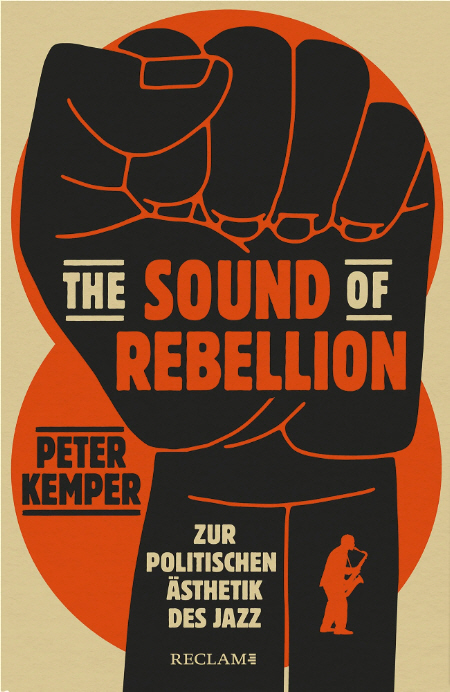 |
|||||||||||||||||||||||||||||||||||||
|
This is the publisher’s blurb: How political is jazz? “It is a mistake to believe that only black people can write about black music. The discourse on these questions should be as diverse as possible.” Archie Shepp
The music journalist Peter Kemper assumes in his comprehensive work that jazz has always been involved in the debate about racism and social exclusion. And writes a jazz book unlike any before: For the first time, the history of the emancipation of African Americans over the last 100 years is traced through the history of jazz. In addition to the most important stylistic milestones, Kemper also describes the most influential personalities and the most influential strategies of their rebellion. Jazz greats such as Louis Armstrong, Charles Mingus and Moor Mother always saw their work as an expression of a life shaped by everyday and institutional racism. But what exactly is the subversive core of jazz? In the democratic character of improvisation? In combative texts and titles? Or in the sound language itself? In his fundamental work, Peter Kemper examines how far the impact of a politically understood jazz extends, where its aesthetic potential and limits lie: The perfect read for music lovers who are interested in the political meaning of music and want to delve deeper into the world of jazz — and a great gift, not just for ambitious jazz fans. - The history of jazz as a story of emancipation for African Americans - Written with noticeable passion by FAZ music critic and jazz expert Peter Kemper - A must-have for every jazz fan: Elaborately equipped with many illustrations and photographs There’s a short piece about the book on the Time News site, entitled ‘Peter Kemper’s “Sound of Rebellion”: When old white men talk about even older black music’. Speaking as an old white man I’ll shut up. 4. Another find from Dirk, and this one’s in English and poetry to boot. |
|||||||||||||||||||||||||||||||||||||
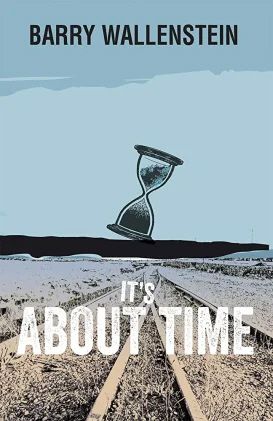 |
|||||||||||||||||||||||||||||||||||||
|
Barry Wallenstein’s It’s About Time is reviewed by Greg Bem on the North of Oxford site and contains the following: Wallenstein’s collection is divided into nine sections, which are seemingly unrelated but connect over tone and structure more than other qualities. The first section, “Eventually,” seemingly covers reflections from an older age, often with references to children and grandchildren. “Listen to the Music” offers poems describing the lives of music and jazz musicians. Stylistically, Wallenstein pulls from the energy of artists like Hal Galper. In “Albert Ayler at the End of the Day” the poet writes: And at the end of the day / the muted scream silenced / drowned/ hush / pearls for eyes/ yes.” More information about the book is available from the publisher, NYQ Books. Barry Wallenstein also has his own site, where it’s worth checking out the Gallery section, which includes some nice photos of Charles Tyler, * Call Cobbs, Death and Snow From Dirk again: ‘The August edition of the Jazzwise magazine takes "a special look at Albert Ayler’s under-sung harpsichord hero Call Cobbs".’ And ‘On the Italian Rock e Martello site (Rock and Hammer, every day a story in music) Gianni Lucini wonders - like so many before him - "Who killed Albert Ayler?"’ I have a bit of a bone to pick with Gianni on this one - written last November, presumably under the spell of the release of the complete Fondation Maeght recordings - he writes: ‘November 25, 1970 - Who killed Albert Ayler? On November 25, 1970, the New York waters of the East River returned the body of saxophonist Albert Ayler. The end of one of the most popular black artists of that period was not due to chance or suicide. Ayler was killed and then thrown into the river. His killers will never have a name or a face. With him disappears one of the most brilliant and contradictory interpreters of the recovery of blacks in America, not only in jazz. His music, both in the internal path of free jazz and in the subsequent and contrasted evolution, is pervaded by the concern not to lose its popular roots and to be understood by "his" people. This is why when the fruitful seed of politicization spreads in the black neighborhoods of US metropolises, Ayler is one of the first free artists to question himself. At the end of the 1960s his music marked a turning point. His improvisations increasingly borrow accompaniments from rhythm and blues and rock and roll. It is not a commercial opening or even a distancing from free jazz, but an attempt to question the aseptic evolution detached from the social context of reference. He does it and he says it. “I'd like to play something that everyone can hum. I want to play the tunes I sang when I was little and folk melodies that the whole world can understand. I would like to use those melodies as a starting point and let them float within my songs. From a simple melody I would like to move on to more complex textures to return to simplicity again and then go further, towards increasingly complex and denser sounds". There is an explicit criticism of the elitist scheme in which free jazz tends to confine itself and the equally explicit attempt to build a sort of musical language capable of connecting tradition with the new aspirations of African Americans. His death ends the discussion early.’ Except, that quote about playing simple melodies everyone can hum, comes from the Downbeat interview with Nat Hentoff, ‘The Truth Is Marching In’, published in November, 1966, and conducted some time before the European Tour. It had nothing to do with what happened later with the Impulse contract and the influence of Mary Maria. That bone picked I pass on to a couple of items from Tim Witham: 1. Issue 84 (September 2023) of Point of Departure has an article by David Neil Lee about Michael Snow, entitled ‘Michael Snow in the Moment: The Icon as Improviser’, which contains some interesting insights into the recording of New York Eye And Ear Control. Not necessarily the fact that Snow wanted a totally free improvisation - no common tune to kick it off - which has become part of the legend of that session, more the fact of where that wish came from. The article does explain Snow’s own musical ‘journey’ (god, how that word has been devalued), especially his involvement with a group of (almost) non-musicians in Canada (almost because they were taking lessons on their instruments but formed their Artists Jazz Band before they were competent). ‘If at first, the music baffled him, Snow began to figure out how to play that way. Back in Toronto, he would join his friends in the Artists’ Jazz Band – if only, for purely social reasons since, musically “... the AJB seemed pretty silly ...” (Wainwright 77); for a number of years, any rumours that the AJB were a band where Michael Snow was the only one who could “really play” were liable to be spread by Snow himself. However, as he spent more time in New York, becoming familiar with the burgeoning free jazz scene, on his visits home Snow found himself taking the Toronto players more seriously. After all, in New York, Snow was surrounded by musicians who “played fixed lines, tunes, and then they improvised ... I thought that was stupid” (Music/Sound 65): I sometimes felt that these musicians weren’t necessarily developing what seemed to be the most amazing implications of their music. They often composed tunes that would, by and large, be played first, followed by solos and repeated to close … but they only occasionally trusted in collective improvisation in which the thematic material is generated then and there by the player-composers. (Collected Writings 188) Snow’s attitude toward the AJB began to change. He realized they were not necessarily as primitive as he’d first thought: “You have to learn how to improvise in that free way” (Music/Sound 64-5). In fact, the musical milestone of Snow’s years in New York was not music he played, but music he commissioned: his 1965 film New York Eye and Ear Control, famous for its soundtrack (as well as brief appearances) by Albert Ayler, Don Cherry, John Tchicai, Roswell Rudd, Gary Peacock, and Sunny Murray. “When I chose the band to make the soundtrack,” Snow writes, “I specifically asked them not to play compositions, just to play free” (ibid., 65). Toronto saxophonist and multimedia artist John Oswald brings an intriguing perspective: The musicians that were involved in the New York Eye and Ear Control sessions – Albert Ayler, et cetera, were all surprised when Mike [Snow] said no head, just play ... he said it just seemed kind of like a novel idea, but a doable idea, to them. So I think the seeds for that idea of, total free jazz let’s call it, were perhaps planted by a Canadian influence. (Oswald, Martinez 2014) Each in his own way, the members of the New York Eye and Ear Control group were on their way to becoming icons of the decade’s so-called “free jazz,” so it’s hard not to find provocative their alleged reluctance to play without, if not “written music” per se, any kind of consensual compositional premise, since freedom was allegedly the innovation their generation was bringing to music. Actually what “free jazz” had really opened up was the range of useable compositional premises, or materials; its creators also questioned the necessity of defining their compositional materials in terms of harmonic progressions, and then repeating those progressions unvaryingly for the duration of a performance.’ 2. And Tim also sent me this for the Versions section (talk about sublime and ridiculous): |
|||||||||||||||||||||||||||||||||||||
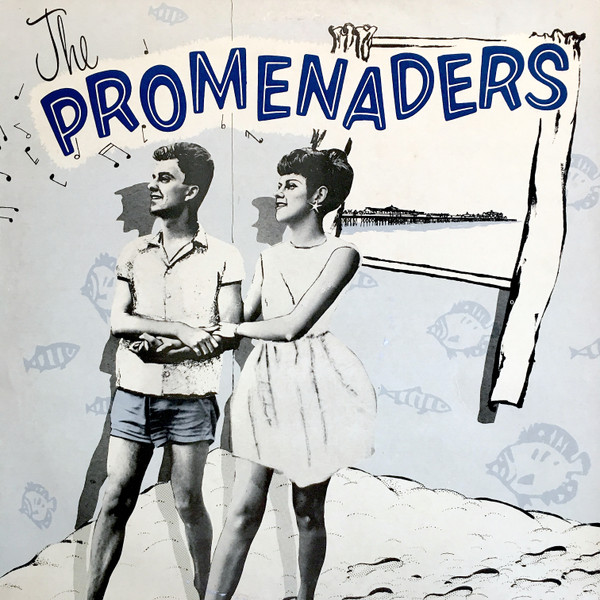 |
|||||||||||||||||||||||||||||||||||||
|
According to Discogs, the album, The Promenaders by The Promenaders was recorded live by Dirk Pitt on Brighton Beach and was released by Y Records in 1982. It is mentioned here because Track 3 on Side 1 is a medley of various tunes, including ‘Oklahoma’, ‘The James Bond Theme’ and ‘I Could Have Danced All Night’, surrounding Albert Ayler’s ‘Ghosts’ and ‘Holy Family’. It is weird. * Less Weird Versions and Tributes Usually I just list these on the various pages and leave it at that, but there do seem to be more than usual this month so I thought I’d give them a mention here. 1. Dirk Goedeking found this entry from Argentina: |
|||||||||||||||||||||||||||||||||||||
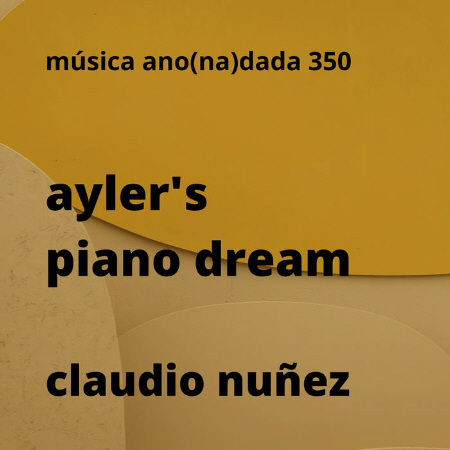 |
|||||||||||||||||||||||||||||||||||||
|
Ayler’s Piano Dream by Claudio Nuñez is a solo album, available on bandcamp, with four tracks specifically named for either Albert or Ayler. 2. Also on bandcamp is the new album from John Pope, entitled Citrinitas: |
|||||||||||||||||||||||||||||||||||||
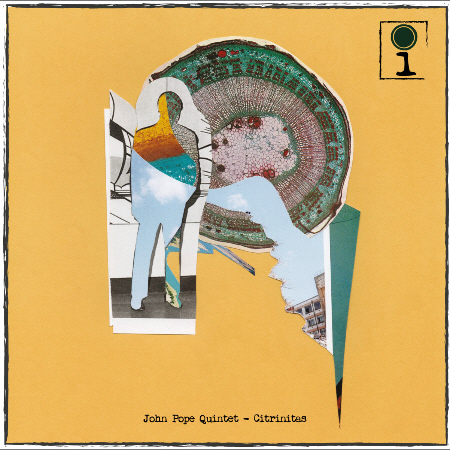 |
|||||||||||||||||||||||||||||||||||||
|
Citrinitas was recorded live at the Star & Shadow Cinema in Newcastle-on-Tyne in April this year. If that sounds familiar, the concert was reviewed in London Jazz News and I mentioned it in the June What;s New, since one of the tunes referred to in the review, and now the final track on the album, is ‘Shiryo’, which is a combined tribute to Albert Ayler and Ryuichi Sakamoto. There’s an interview with John Pope on NARC Magazine and a review of Citrinitas on the Free Jazz Collective site. 3. Also reviewed at the Free Jazz Collective is Beyond The Margins by Rodrigo Amado The Bridge. |
|||||||||||||||||||||||||||||||||||||
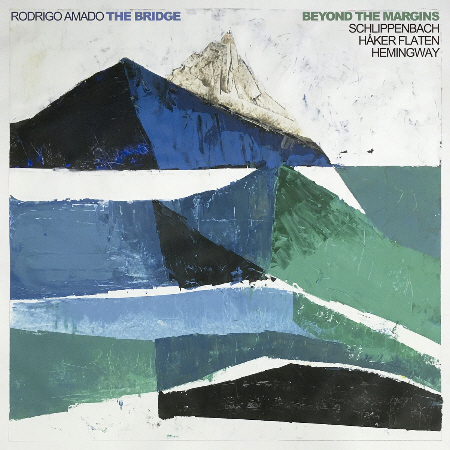 |
|||||||||||||||||||||||||||||||||||||
|
Stuart Broomer’s review includes the following: ‘The performance of Albert Ayler’s “Ghosts” calls for a special note. A while ago, a performance video of Amado was circulating in which he played “Ghosts” with a student rhythm section and trumpeter Peter Evans at a workshop in the Azores. It was, as is this, extraordinary, both in its sound and its magisterial presence. On a personal note, once on a solitary midnight walk during a brief visit to Montreal in 1967, I went in search of The Barrel, perhaps the only place in Canada that regularly featured significant free jazz figures. In one of youth’s enchanted moments, my favorite musician in the world just happened to be playing there. Albert Ayler’s sound was blossoming out of the open door, expanding into the August night. I’ve never heard a saxophone sound as full or as complex, never quite caught on record, a broad sound that could begin in foghorn lower-register blast and trail off into upper partials as sweet, gauze-like and airy as those of Stan Getz. There’s been a sudden flurry of Ayler derivatives in free jazz lately, generally a trivialization, a kind of devout mockery, of one of the greatest figures in the music’s history by some of the least skillful. There’s none of that here—instead that melody, initiated in a whisper, soars as authentic tribute and visionary invocation on Amado’s own rich, complex, precise and distinct timbres, inflections and emotions, each note, each sound as if weighed on an alchemist’s scale. As elsewhere, the group is superb.’
|
|||||||||||||||||||||||||||||||||||||
|
F.M. again There’s a 3-part podcast on youtube featuring Matthew Shipp discussing Albert Ayler with Mitch Goldman, originating from WKCR. Here’s a link to the first part, and this is the blurb attached to it: ‘There is a point at which the usefulness of language ends. You are simply not going to be able to express in words the sense of awe that you feel when creation overwhelms you but you always know when someone else is feeling it, too. In this moment you will find pianist Matthew Shipp and others who admire saxophonist Albert Ayler. Albert Ayler died at age 34 in 1970 and to this day his life feels more like an ellipsis or a question mark than a complete sentence. So much undone. And yet, just months before he died, he threw down an exclamation point. There were 2 performances at a glorious shrine to Modernism, La Fondation Maeght in the south of France, that stated who Albert Ayler was and how he believed music could convey the ineffable. Do we have recordings of this performance? It’s Deep Focus; of course we do!’ As I said, I’m an old white man, I’ll shut up now. * And finally ... We end on a rather sombre note. This month it will be 53 years since Albert Ayler’s body was dragged from the East River. Dirk found this painting by Rob W. Jones: |
|||||||||||||||||||||||||||||||||||||
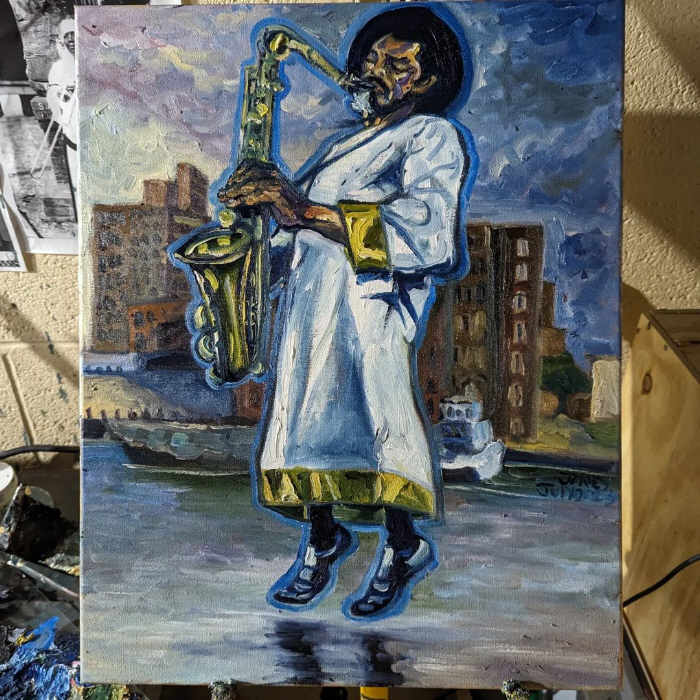 |
|||||||||||||||||||||||||||||||||||||
|
‘Thee Holy Ghost Communes with God above the East River ( a study of Albert Ayler), 16" x 20", oil on canvas. As I have said, I am not a huge fan of listening to free jazz, but I'll be darned if the players and their stories are not fantastic. Albert blew the hardest of the big three (Coltrane, Sanders, Ayler). He blew so hard, channeling another dimension that a drummer of his, swears he saw Albert levitating several inches above the stage during a performance!!! At the young age of 34, Albert's body was found floating down the East River, his cause of death is unknown.’ And a final note. Carla Bley died last month. As far as I know she never recorded or performed with Albert Ayler, but he is mentioned in Harrison Smith’s obituary in the Washington Post: 'Still, her musical interests extended far beyond jazz, and even led Ms. Bley to announce that she had “renounced” the art form for a few years in the late 1960s, when she turned from the radical intensity of free jazz to a more playful style influenced by the Beatles and saxophonist Albert Ayler, whom she called “maudlin in the most wonderful way.”’
|
|||||||||||||||||||||||||||||||||||||
|
December 1 2023
Mars Williams (29/5/1955 - 20/11/2023) Very sad to report the passing of Mars Williams, who lost his battle with cancer last month at the age of 68. Most of the obituaries highlight his associations with the Psychedelic Furs and the Waitresses, but for this site, he will be remembered for his Ayler Xmas concerts and CDs. I first came across the concept of mixing Ayler tunes with Christmas carols back in December 2009, when Bernard Stepien was doing it in Canada. And then there was that track on Matt Wilson’s Christmas Tree-O CD in 2010. I’m not sure when Mars Williams took up the baton - the earliest mention on this site is in January 2017, relating to a concert the previous December - but I think he was doing festive concerts with his Witches & Devils Ayler tribute band, much earlier than that. Anyway, he took it to a whole new level, and it became a regular fixture in these pages until last year. There are obituaries in the NME, Far Out, the Chicago Reader and Variety (which includes a lot of youtube clips) and Dirk Goedeking let me know about a recent interview with Mars Williams in the Chicago Tribune which was published on 15th November. * Random Items 1. An interview with Zev Feldman - the man behind last year’s Revelations: The Complete ORTF 1970 Fondation Maeght Recordings - in The New Yorker (featuring a great Edgar Allan Poe cartoon). 2. An interview with James Brandon Lewis at The Quietus concerning his new project about Mahalia Jackson, which includes the following: ‘When many people hear gospel elements in a free jazz context they think of Albert Ayler. “I don’t have a problem with that,” Lewis stresses, “But I think it’s important to celebrate what’s informing an artist like him. I'm pretty sure he knew about Thomas Dorsey. I’m probably sure he knew about Mahalia Jackson. So, I wanted to take it a step further and not celebrate Albert Ayler but celebrate Mahalia Jackson, because when I was growing up in the church, nobody talked about Albert Ayler. It’s important to understand the progression of things. Okay, Albert Ayler, he’s cool. I dig him, but I like to dispel certain notions. If you look at some of my titles, they’re pointing towards a certain frame of thought. I wanted to show a thread, a continuum. Have a foot in the past, a foot in the present, and your mind in the future.”’ 3. Patrick Shiroishi’s I was too young to hear silence Influences Playlist at Flood magazine includes Ayler’s ‘Goin Home’ from Swing Low Sweet Spiritual, which, combined with the above, made me wonder whether Ayler’s gospel music influence was particularly noted during his lifetime, or whether it’s only since the posthumous release of his ‘Gospel album’ in the early 80s. Even then, with the 1964 session appearing for the first time on a rather obscure Dutch label, would it have made that much impact? So that it probably wasn’t really noticed until the Black Lion CD release in 1994, 30 years after it was originally recorded. My recollection of Ayler’s reputation back in the 60s, was that he was the most ‘far out’ of all the Free Jazzers (‘man’) and his little tunes and New Orleans Marching Band interludes were regarded in a humorous vein, such as in this passage from an article entitled ‘The New Jazz’ in Newsweek from December, 1966: ‘The prospect of jazz returning to the mainstream of American music is remote. The new musician might want the respect of the establishment but they are not willing to cater to establishment tastes. Coleman, Coltrane, Taylor, Shepp, Brown and Albert Ayler are pushing the revolution further and further away from the accepted landmarks of two-four time, blues harmony, simple melodies and sweet, soothing sounds. “To me,” says the bearded Ayler, whose ebullient “Ghost” has become an unofficial anthem of the new music, “conventional jazz is a joke.” He expresses his amusement in the Southern church-band tunes he works into his whinnying, boiling solos built like collages out of bits of this and that—blues, Dixie, gospel.’ Like the execrable late Impulse albums which everybody now seems to love, maybe Swing Low Sweet Spiritual is slipping off its original coat of temporary aberration and donning something a little more stylish. 4. We all respond to Albert Ayler in different ways - here’s Emmet Martin of the Water Shrew Trio: “Albert Ayler’s album Love Cry just completely shattered my brain open when I heard it, and I didn’t want to listen to anything else,” Martin said. “I wanted to listen to only the freakiest shit possible after that.” * The Albert Ayler Christmas Shopping Bag Or this Independent review from 1998 of the release of Live In Greenwich Village: The Complete Impulse Recordings which begins: ‘Just as there are great novels that you will never read, so there are records that you will never listen to, however historically important they may be. Indeed, you could say that there are some records that don't need to be played at all, for it was enough that they were made in the first place. Albert Ayler is a bit like that. You know the squawks and squeaks of his saxophone had to occur, that jazz history made them both inevitable and necessary, but it's still not sufficient to make you want to sit and listen to him if you can possibly help it.’ The headline for the review is Jazz: The sound of a pet-shop, burning and it was that which sent Dirk Goedeking on this year’s quest to fill his shopping bag with items “for a happy holiday for all the cats and dogs in the neighbourhood.” Such as: |
|||||||||||||||||||||||||||||||||||||
 |
 |
||||||||||||||||||||||||||||||||||||
 |
 |
||||||||||||||||||||||||||||||||||||
|
cat blanket and dog blanket. |
|||||||||||||||||||||||||||||||||||||
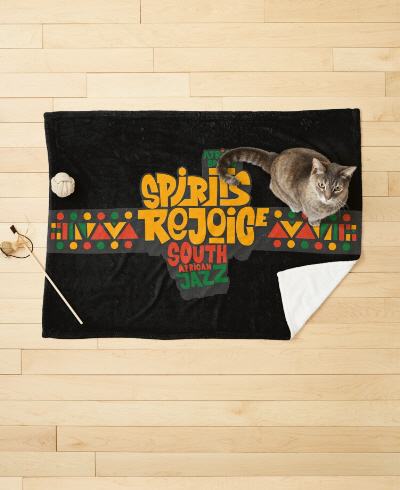 |
 |
||||||||||||||||||||||||||||||||||||
|
Leaving all this cuteness aside, Dirk also suggests one might like to purchase Ake Bjurhamn’s original artwork for The Copenhagen Tapes. |
|||||||||||||||||||||||||||||||||||||
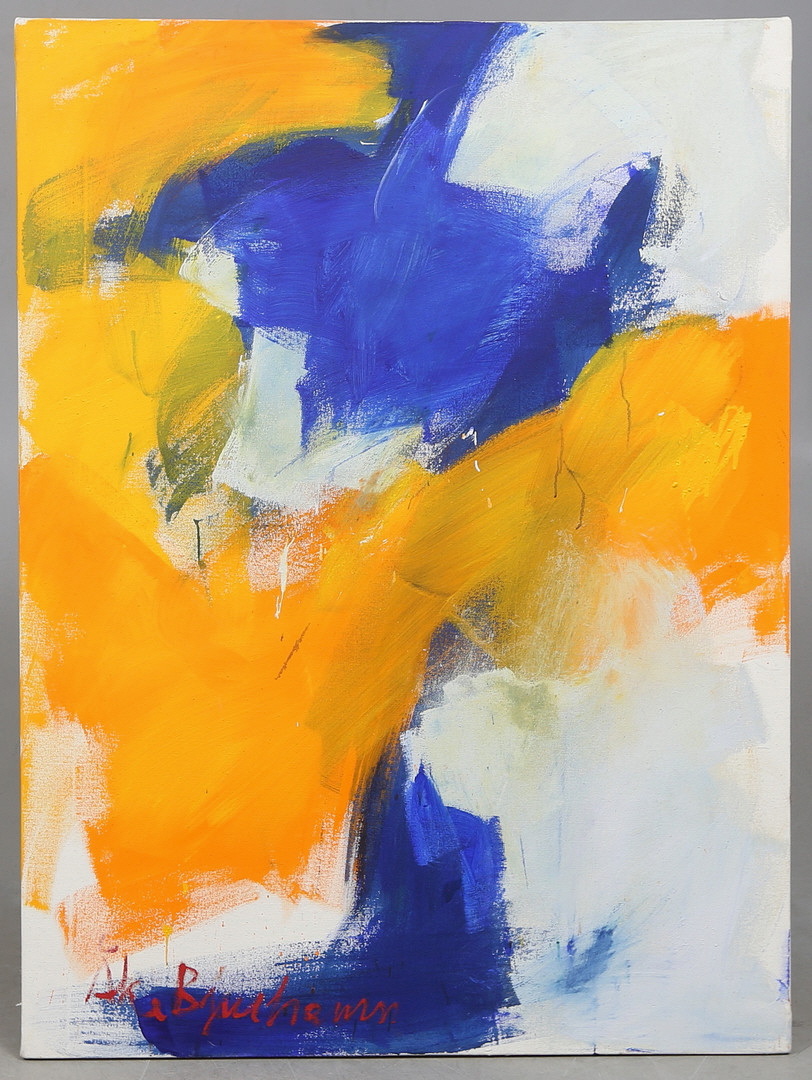 |
|||||||||||||||||||||||||||||||||||||
|
Too late - it went for £419 in August. Bugger! My only contribution to all this festivity is to note that the Albert Ayler Europe 1966 4 LP box set makes the Twittering Machines 2023 Holiday Gift Guide, alongside a veritable cornucopia, including this Tower of Babel Christmas Decoration ‘after Pieter Bruegel the Elder’s 16th century painting.’ Not sure what to make of that, but in these fractious times ... |
|||||||||||||||||||||||||||||||||||||
 |
|||||||||||||||||||||||||||||||||||||
|
youtube roundup ‘Mothers’ by the Michel Fernandez Trio
|
|||||||||||||||||||||||||||||||||||||
|
‘Infant Happiness’ by Shibabi
|
|||||||||||||||||||||||||||||||||||||
|
‘Witches and Devils’ by the Vijay Anderson Quartet
|
|||||||||||||||||||||||||||||||||||||
|
‘Ghosts’ by the Vijay Anderson Quintet
|
|||||||||||||||||||||||||||||||||||||
|
And finally . . .
|
|||||||||||||||||||||||||||||||||||||
|
*** News from 2004 (January - June) 2004 (July - December) 2005 (January - May) 2005 (June - December) 2010 (January - June) 2010 (July - December) 2011 (January - May) 2011 (June - September) 2011 (October - December) 2012 (January - May) 2012 (June - December) 2013 (January - June) 2013 (July - September) 2013 (October - December) 2014 (January - June) 2014 (July - December) 2015 (January - May) 2015 (June - August) 2015 (September - December) 2016 (January - March) 2016 (April - June) 2016 (July - August) 2016 (September - December) 2017 (January - May) 2017 (June - September) 2017 (October - December) 2018 (January - May) 2018 (June - September) 2018 (October - December) 2019 (January - May) 2019 (June - September) 2019 (October - December) 2020 (January - April) 2020 (May - August) 2020 (September - December) 2021 (January - March) 2021 (April - July) 2021 (August - December) 2022 (January - April) 2022 (May - August) 2022 (September - December) 2023 (January - March) 2023 (April - June) 2023 (July - September) 2024 (January - March) 2024 (April - June) 2024 (July - September) 2024 (October - December) 2025 (January - March)
|
|||||||||||||||||||||||||||||||||||||
|
Home Biography Discography The Music Archives Links What’s New Site Search
|
